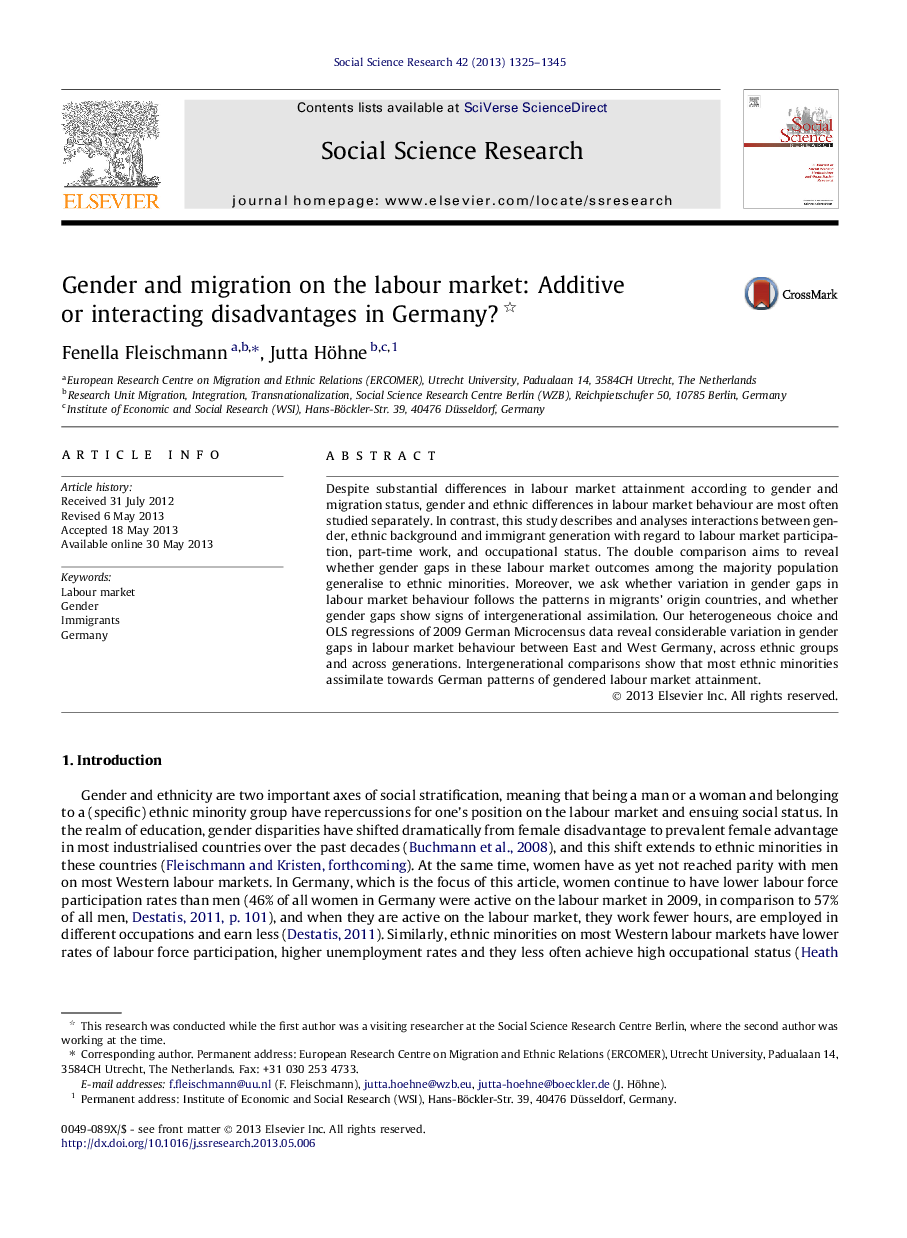| Article ID | Journal | Published Year | Pages | File Type |
|---|---|---|---|---|
| 956053 | Social Science Research | 2013 | 21 Pages |
•Gender, ethnic background and migration generation are not additive disadvantages on German labour market.•Gendered labour market integration differs markedly by origin countries.•Gender gaps in labour market behaviour assimilate to the West German mainstream.•Heterogeneous choice models are applied to address the scaling problem in logistic regression.
Despite substantial differences in labour market attainment according to gender and migration status, gender and ethnic differences in labour market behaviour are most often studied separately. In contrast, this study describes and analyses interactions between gender, ethnic background and immigrant generation with regard to labour market participation, part-time work, and occupational status. The double comparison aims to reveal whether gender gaps in these labour market outcomes among the majority population generalise to ethnic minorities. Moreover, we ask whether variation in gender gaps in labour market behaviour follows the patterns in migrants’ origin countries, and whether gender gaps show signs of intergenerational assimilation. Our heterogeneous choice and OLS regressions of 2009 German Microcensus data reveal considerable variation in gender gaps in labour market behaviour between East and West Germany, across ethnic groups and across generations. Intergenerational comparisons show that most ethnic minorities assimilate towards German patterns of gendered labour market attainment.
